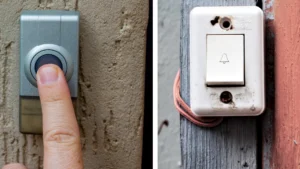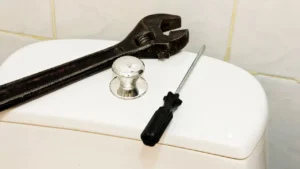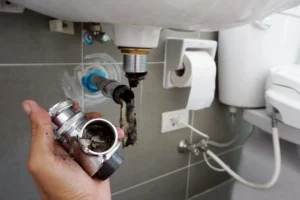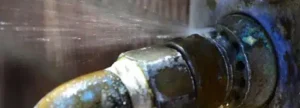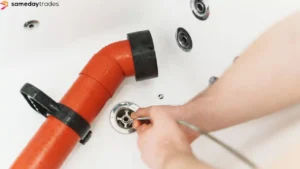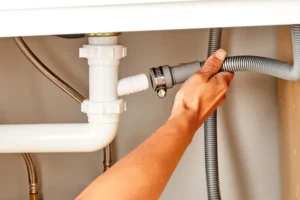Faulty wiring is undoubtedly a severe electrical issue that needs to be dealt with immediately.
There are nearly a thousand cases of electrical fires in Australian households every year caused by faulty wiring. Such untoward incidents often leave the residents with costly repairs and medical bills to deal with, which can be frustrating.
But the good news is numerous warning signs indicate a fault in the electrical wiring. If you detect these signs and take immediate action, you can potentially prevent a dangerous accident. On top of that, you will be able to avoid the inconvenience caused by inconsistent electrical performance and flickering lights.
So, without further delay, let’s learn how to detect faulty wiring.
How To Detect Faulty Wiring?
As mentioned previously, certain signs indicate faulty electrical wiring. For instance, flickering and dimming lights are the most common ones. If you experience recurring fuses and blown breakers, the culprit could be an electrical fault in the wiring.
Other noticeable signs of faulty wiring include darkened or charred switches and outlets. Plus, outlets that emit electrical shocks and hot ceiling fixtures are tell-tale signs of faulty wiring. Lastly, if you experience a power outage while installing a new appliance, it could indicate a more complicated electrical problem.
More often than not, homeowners are the ones responsible for these issues. For example, connecting multiple extension cords to one electrical outlet leads to an overload and causes some of the problems we just mentioned.
Here are a few other common wiring issues that can spell trouble:
- Uncovered junction boxes
- Ungrounded receptacles
- Bent or damaged electrical plugs
- Frayed wiring
- Few outlets and reliance on too many power strips and extension cords
- No GFCI in bathroom and kitchen
These potential concerns can be easily avoided. For instance, repairing or replacing frayed wires with new ones and minimizing the load on power outlets are quick solutions. Additionally, you need to ensure that you cover all the junction boxes and receptacles and install GFCI wherever needed. Upon addressing these issues, make it a point to follow safe electrical practices.
On a side note, teach your family members the dangers and risks associated with precarious electrical practices.
When To Get Your Wiring Inspected By An Experienced Electrician?
If you are not sure if your electrical wiring is faulty, get in touch with a qualified and experienced electrician. They can review the wiring in your home and confirm if there’s something wrong with it. Needless to say, professional electricians possess the knowledge and experience required to identify wiring issues and electrical problems that could prove dangerous down the road.
Furthermore, a qualified electrician will most likely compare the electrical wiring in your home to the current building codes in order to identify code violations. However, it’s worth noting that code violations are seldom the cause for rewiring the entire home.
Although you may not be compelled to make urgent repairs to bring your wiring up to code, it is a good idea to do so. Building codes ensure minimum safety standards, so it would certainly be a great idea to consider a rewiring project if your electrician finds any violations.
While some code breaches, such as light fixtures powering bulbs that exceed the fixture’s maximum wattage, are easy to fix, others are a bit difficult. Don’t worry; a professional electrician will provide you with a full analysis of any violations, their risk level, and recommendations for replacing your wiring.
How To Deal With Faulty Wiring?
If you don’t have any prior experience in dealing with electrical issues, we don’t recommend replacing the home wiring on your own. Hire a professional electrician instead as there are many safety considerations, industry standards, and building codes that need to be followed when working with electrical panels or electrical wiring.
However, there are a few wiring issues that you can take care of on your own as a part of home maintenance. For example, you should keep an eye on the receptacles and replace or repair broken or worn-out outlets.
Additionally, if you have some prior experience in fixing electrical issues, you can go ahead and replace fuses and circuit breakers whenever required. But for more advanced jobs, contact your local electrician.
While it may be tempting to save a few dollars by doing it yourself, electrical wiring is one of those repairs that demands professional expertise.
Frequently Asked Questions (FAQs)
This section has tried answering some of the most commonly asked questions regarding electrical wiring. We hope you find them helpful.
1. How often should I replace my electrical wiring?
It’s a bit difficult to tell as there are a lot of factors that determine the age of the wiring. More often than not, wiring can last for decades. So, if you have rewired the house recently, there is no need to rewire it for the next five to six years, provided you follow safe electrical practices.
2. How often should I get the electrical wiring in my home checked?
If your home is more than 25 years old, we strongly recommend hiring qualified electricians to check the wiring and the electrical panel. After all, these experts can offer professional services and fix all the electrical issues for long-term safety.
Final Thoughts
On that note, we have reached the end of the article. We hope you have learned how to detect faulty wiring by now.
However, if you fail to understand the main issue, make sure you contact a qualified and experienced electrician to get the wiring inspected and the required electrical work done. Also, remember to follow safe electrical practices such as replacing frayed wires and lightening the load on power outlets to prevent fire hazards and prolong the lifespan of your wiring.
With that bit of advice, it’s time for us to wrap it up. Until next time, stay safe!


